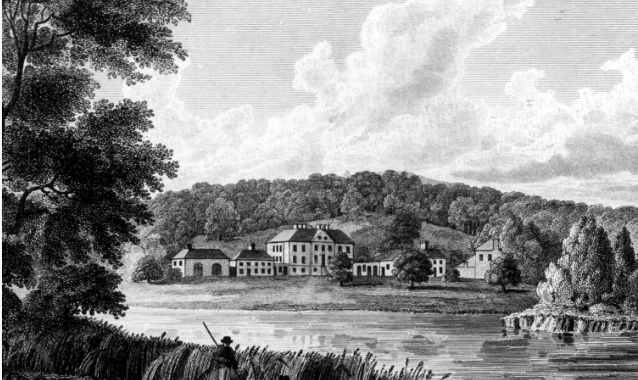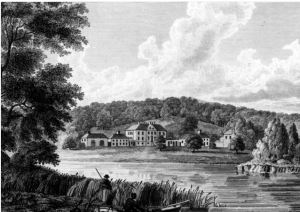Once the water in Castle Semple Loch was lowered, the locals took a shortcut across the centre of the loch at the ‘Wading Place’ to Lochwinnoch. But this was a dangerous route. In the winter of 1767 a young lady and her footman were drowned there, in full view of her mother, brother and fiancé. Later a causeway was built and the crossing became the modern road from Lochwinnoch station to the village. Over the years, the gradual development of this road split the single long stretch of water into two lochs, Barr Loch and Castle Semple Loch.
There was another bigger difficulty for the locals. Back in 1680s, when the Semples had begun to drain the loch, they had drawn up a legal agreement that any new dry land created around the shrinking loch would become their own property. Once McDowall took control, he tried to enforce the old agreement to the letter of the law. Defying fairness and common sense, he attempted to prevent access to the shrinking loch by all those living around the perimeter, even to water their cattle.
McDowall’s desire for privacy and improvement created barriers at every turn for the local population, when going about their daily lives. McDowall also enclosed all the land along the loch and blocked the public road. The purpose was two-fold, to create separate enclosed fields, and to keep the local riff raff away from his mansion. This process of wealthy landowners denying access is familiar today, but in 1730 it was one of the earliest challenges to the public’s right to roam. The locals took McDowall to Court of Session and unexpectedly, they won. McDowall was forced to reinstate the bridges across the narrows of the loch.
The third big scheme was by McDowall’s grandson. From the 1770s he rebuilt the old dam at the east end of the loch and start of the Black Cart. His initial purpose was to re-flood the loch as a landscape feature, with man-made islands fronting his mansion.But from the early 1790s he had other reasons. By this time the loch had become a reservoir for six new water powered cotton spinning mills down the Black Cart at Johnstone and Linwood. McDowall closed the sluice in the dam and held the mill owners to ransom. They had no choice but to pay him fees in proportion to the size of their mills.
©2015, Stuart Nisbet, Renfrewshire Local History Forum


